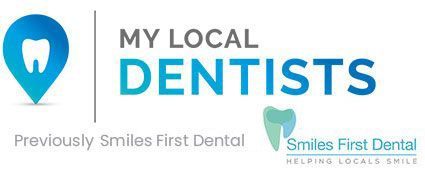
Teeth whitening is one of the most popular ways for people to make cosmetic enhancements to their smiles. It can also be one of the most overwhelming treatments to undertake as there are so many dentist-led and over the counter style treatments available. So how does teeth whitening work, and which of the many whitening treatments available is right for you?
How does teeth whitening work? Understanding the options for whitening treatments
Teeth whitening treatments can help restore the colour and appearance of teeth. Whitening treatments will be most effective on healthy teeth, so before commencing any in-chair or at-home teeth whitening, it is strongly recommended that you have a check-up with your dentist.
If you choose to get teeth whitening with a dentist, you will likely be offered one of the following treatments:
- Take-Home Professional Whitening Kit: The dentist will provide custom plastic trays and supply a strong and effective bleaching formula that will gradually whiten the teeth over about two weeks. You may be directed to use the trays at intervals throughout the day or overnight.
- In-Chair Laser Teeth Whitening: This is also known as “one-hour teeth whitening” because you’ll only be with the dentist for about 60 minutes, but the results will wow you. The dentist will use a peroxide-based gel that may brighten your teeth by up to 8 shades whiter. Results are generally visible straight away.
Over the counter whitening treatments are not generally recommended by dentists. Some can do more harm than good to your teeth if misused, and others won’t cause damage but don’t usually contain sufficient hydrogen peroxide to make any difference. Results, if any, can take months and will usually only be a shade or two lighter than when you started.
How does teeth whitening work? What’s In the whitening treatments?
According to the US National Library’s National Institutes of Health, hydrogen peroxide is the most common active ingredient found in teeth whitening treatments. Dentists can provide treatments with a much higher concentration than anything sold over the counter.
Possible side effects of some whitening treatments include increased tooth sensitivity and minor irritation. While this can still happen with in-chair or at-home whitening treatments administered by your dentist, there is less risk of complications or side effects when you’re under the care of an oral health professional.
How do teeth become discoloured?
 Most of us know the common causes of discolouration that require us to explore teeth whitening options—ageing, smoking, coffee, tea, red wine and some medications.
Most of us know the common causes of discolouration that require us to explore teeth whitening options—ageing, smoking, coffee, tea, red wine and some medications.
Part of the reason ageing is to blame is that tooth enamel wears down as we get older. We can also cause this to happen prematurely through a poor diet – for example, fizzy drinks of any colour can erode enamel, and sugar are also common culprits.
But did you know that there are some other ways we might be making our teeth appear more yellow? White wine, curries and even balsamic vinegar can impact our smiles’ appearance.
This is why it’s important to discuss your teeth whitening plans with your dentist, even if you want to try a different treatment to the ones they offer in their surgery. Keeping your teeth healthy with regular check-ups won’t just help keep them whiter. It will ensure that any whitening treatments you use achieve the expected results.
How Does Teeth Whitening Work? Find Out From Us
The best way to get information is from your dentist, so book your next check-up now. Our friendly My Local Dentists Northmead team are always happy to help answer questions and provide obligation-free guidance about options for things like teeth whitening and other cosmetic procedures.
Call us on (02) 9630 9996 today.
References
NCBI – Tooth Whitening: What We Know Now
https://www.ncbi.nlm.nih.gov/pmc/articles/PMC4058574/#:~:text=Whitening%20chemistry&text=The%20active%20ingredient%20in%20most,water%20to%20release%20hydrogen%20peroxide#
WebMD – Tooth Discolouration
https://www.webmd.com/oral-health/guide/tooth-discoloration
Colgate – Causes of Yellow Teeth & How To Avoid Them
https://www.colgate.com.au/oral-health/adult-oral-care/ten-causes-of-yellow-teeth-and-how-to-avoid-them
Web MD – Tooth Enamel Erosion and Restoration
https://www.webmd.com/oral-health/guide/tooth-enamel-erosion-restoration#:~:text=Tooth%20erosion%20happens%20when%20acids,can%20eat%20away%20at%20enamel.
